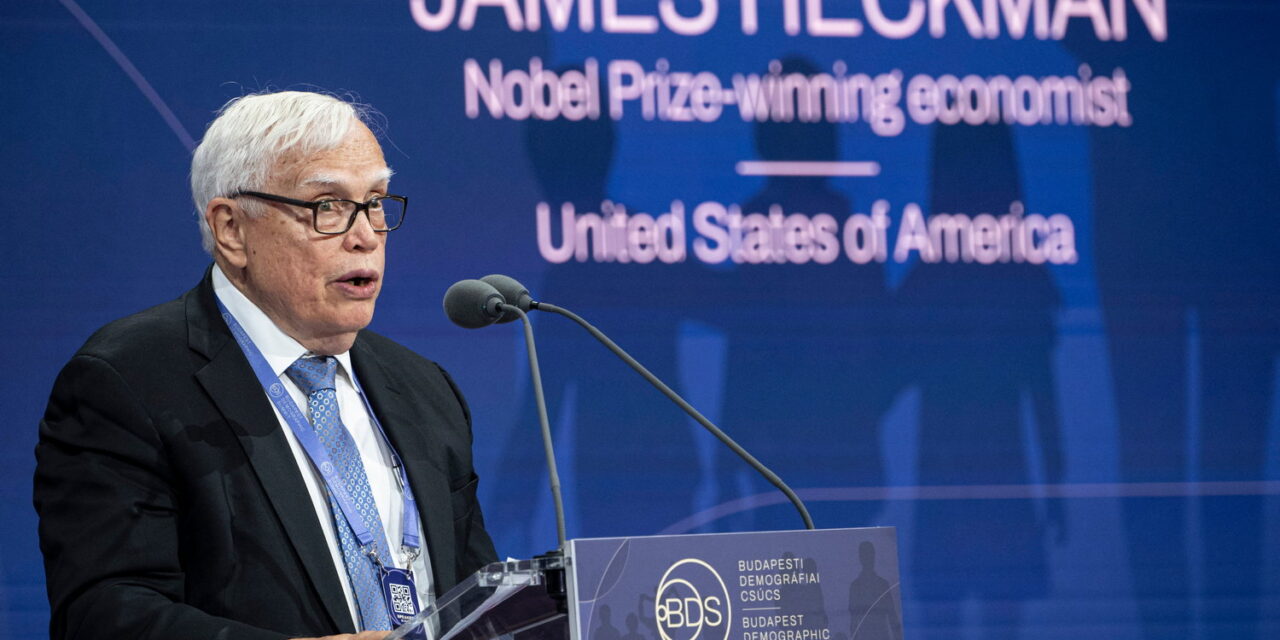So far, scientific research has underestimated the importance of maternal love and family upbringing in the development of a child's cognitive and emotional abilities, said James Heckman, Nobel Prize-winning professor of economics at the University of Chicago and one of the guest speakers at the 5th Budapest Demographic Summit on Thursday.
The American scientist emphasized that maternal love, mentoring of children and family upbringing promote the child's intellectual development. He stated that previous scientific research underestimated the role of parents, family and mothers in the development of children's abilities, and
"we are only now really beginning to understand" the importance of training and education that begins in early childhood.
In his lecture, James Heckman reminded us: according to the current narrative in the United States
racism is systemic in American society, and it is inappropriate to talk about the differences between the cognitive and emotional capacities of people of different origins.
He said that although the human gene pool, the human genome, is important in the development of a person's cognitive, emotional and social abilities, it is by no means omnipotent: according to American research, child education, skill development, and special training have a very important role in the development of children and young people.
The Nobel Prize-winning economist proved that with his own research
existing initial differences can be effectively reduced by appropriate family and parental education, school education, special training, government programs and public policy decisions.
He explained that already in the 1960s and 1970s, many government and privately funded programs were started in the United States to improve the lives of disadvantaged children living in poor conditions. As an example, he mentioned the Perry Preschool program, which he also examined, which aimed to strengthen the cognitive abilities and social skills of these children. Thanks to the project, the selected children's IQ test results improved continuously, compared to their peers in the control group, and they learned important behavioral patterns (self-control, executive and control functions, task solving, social integration).
After examining the selected group of children 20-25 years later, the American professor found that the members were much more likely to finish high school, get a job, go to university, and were much less likely to commit crimes than members of the control group. In addition, the positive effects also appeared in the lives of their children, who, according to later tests, achieved similarly better results compared to their contemporaries.
Citing another example, he emphasized that
child poverty cannot be eliminated with financial support alone.
Using research examples from Chicago, he illustrated that family life at home is of enormous importance in overcoming child poverty, as the love of the mother, parents and family creates a protective shell around the children, which later helps to increase their mental and emotional performance and overcome their disadvantage.
At the end of his presentation, James Heckman quoted British economist Sir Dennis Robertson (1890-1963), a professor at Cambridge and London universities, according to whom, of all the important things in life, man lacks love the most.
MTI
Front page photo: Nobel Prize-winning economist James Heckman gives a lecture on the first day of the 5th Budapest Demographic Summit at the Museum of Fine Arts on September 14, 2023.
MTI/Zsolt Szigetváry













